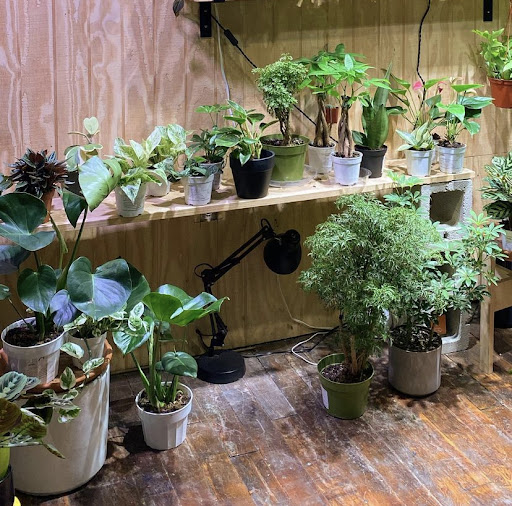How students can be environmentally conscious this year

Plants potted with love at the Packing House in Claremont Village
It’s a new year! As everyone is settling into 2022, Rancho Cucamonga High School students should consider making eco-friendly lifestyle changes that can help make a positive impact on the environment.
The way we treat our environment has huge consequences for the future of our planet. It affects everything from our health to the well-being of our ecosystems and wildlife. We can all do our part in protecting the Earth. Now more than ever, it is important that we understand the impact our actions have on the environment. In order to become more environmentally conscious, we need to take action to protect the planet and hopefully undo some of the damage we already caused.
It doesn’t take a lot to be considerate of our Earth. It only takes empathy and responsibility to make a move towards change for a better, cleaner, safer, and healthier environment. Behaving in a more environmentally conscious way can be as simple as making minor changes to your lifestyle. We affect the environment in many ways, including pollution emission to land, air, and water, use of natural resources, and energy consumption and waste.
Students can become more eco-conscious by taking action to help protect the environment through reducing waste, reusing, recycling, and shopping sustainably or second-hand.
Reducing waste may be difficult at first. However, it helps the environment greatly. It reduces pollution, reduces the harm to wildlife and human health, lessens littering on beaches and other landscapes, and reduces the clogging on waste streams and landfills. To start, waste can be reduced through reusing and recycling products. You can also start to compost green waste or use products that are biodegradable. However, it is extremely important to research your products and make sure they are truly compostable or biodegradable.
Reducing waste is one of the hardest practices someone can implement in their everyday life. It’s important to remember that every little sustainable practice helps. Remember not to feel pressured into being perfectly conscious about your decisions regarding the environment. Instead, remember that you can do the best you can. Making sure you don’t litter, and that you throw away trash in its correct disposal is the simplest way to reduce waste.
Using reusable products can greatly reduce waste. The practice is essentially switching single use items to its equivalent reusable item, for example, switching from plastic water bottles to water bottles that can be washed and used again. Using reusable products reduces single use products’ effect on pollution and buying reusable products can also eliminate the cost of having to keep buying its single use equivalent.
Another way students can become more eco-conscious is to recycle. It is important for students to know how to correctly recycle to make the process easier, faster, and effective. Recycling prevents the emissions of greenhouse gasses and water pollutants, and saves energy. When products are made using recovered materials, less energy is used during manufacturing, and fewer pollutants are emitted. Making sure that a product you are recycling is clean, empty, and dry is vital as food waste contaminates recyclable material and goes straight to landfills. Researching your products or reading the labels can provide correct instructions on how to recycle however buying recyclable products makes recycling easier. Using the products made of recovered material also considerably reduces waste’s harmful effects.
Shopping sustainably is another way people can be more eco-conscious, and it means to shop responsibly, whether it’s mass produced or second-hand. We as consumers are partly responsible for the pollution and waste and can do our best to shop responsibly. Shopping sustainably reduces water use and pollution, carbon emissions, and large amounts of waste. Sustainable shopping also supports fair labor practices. Buying locally and shopping small is an easy way to support businesses and farms in your area and contributes to reducing food’s carbon footprint.
Fashion waste is one of the biggest harms to our environment. Fast fashion mass produces clothing items through using large amounts of water and energy. As fast fashion becomes more affordable and accessible, it’s easy to get caught up in a cycle of buying clothing because it’s trending at the time and discarding it when it’s over. Students can avoid this by asking themselves if they truly love a clothing item and can see themselves wearing it or styling it over and over again.
Students could go a step further by taking social action to protect the environment. Encouraging others to be environmentally conscious, going to or organizing clean ups, and protesting for political action are all substantial ways to fight to protect the environment.
Taking political action like encouraging local politicians and businesses to support and enforce eco friendly efforts can greatly reduce negative impacts on the environment.
Students can become more eco-conscious by taking action to help protect the environment through reducing waste, reusing, recycling, and shopping sustainably or second-hand. It doesn’t take a lot to be considerate of our Earth. It just takes empathy and responsibility to make a move towards change for a better, cleaner, safer, and healthier environment.










